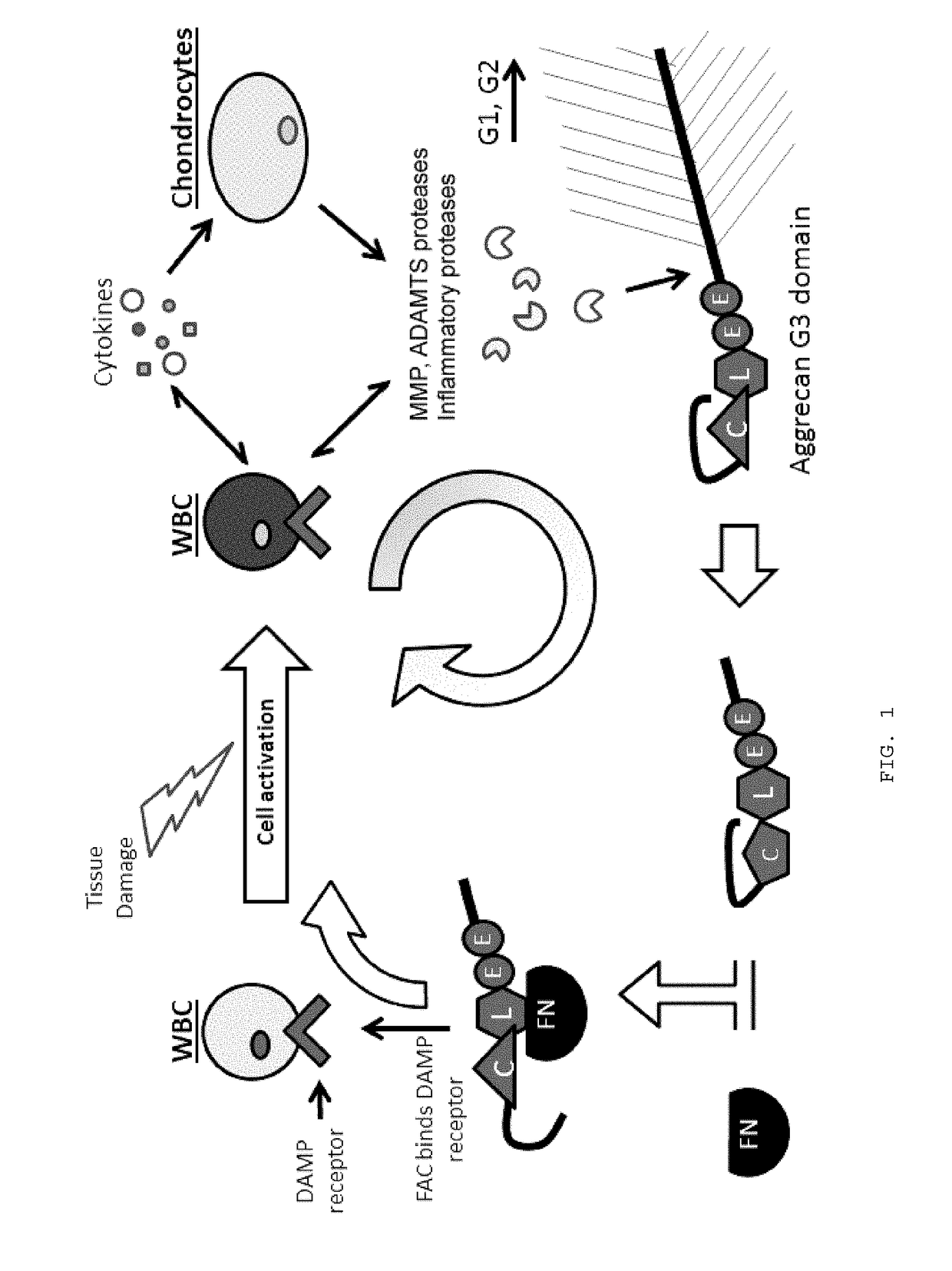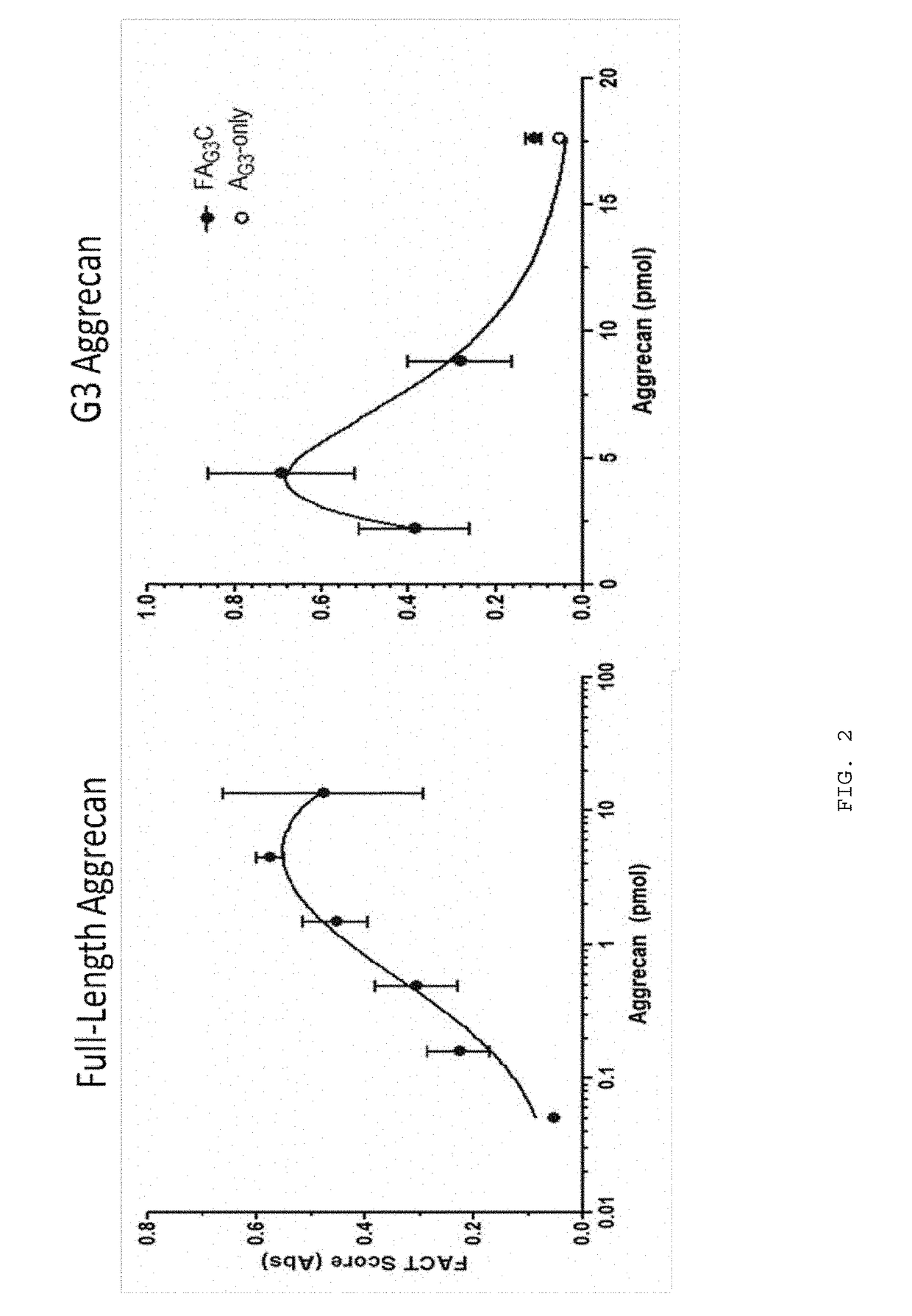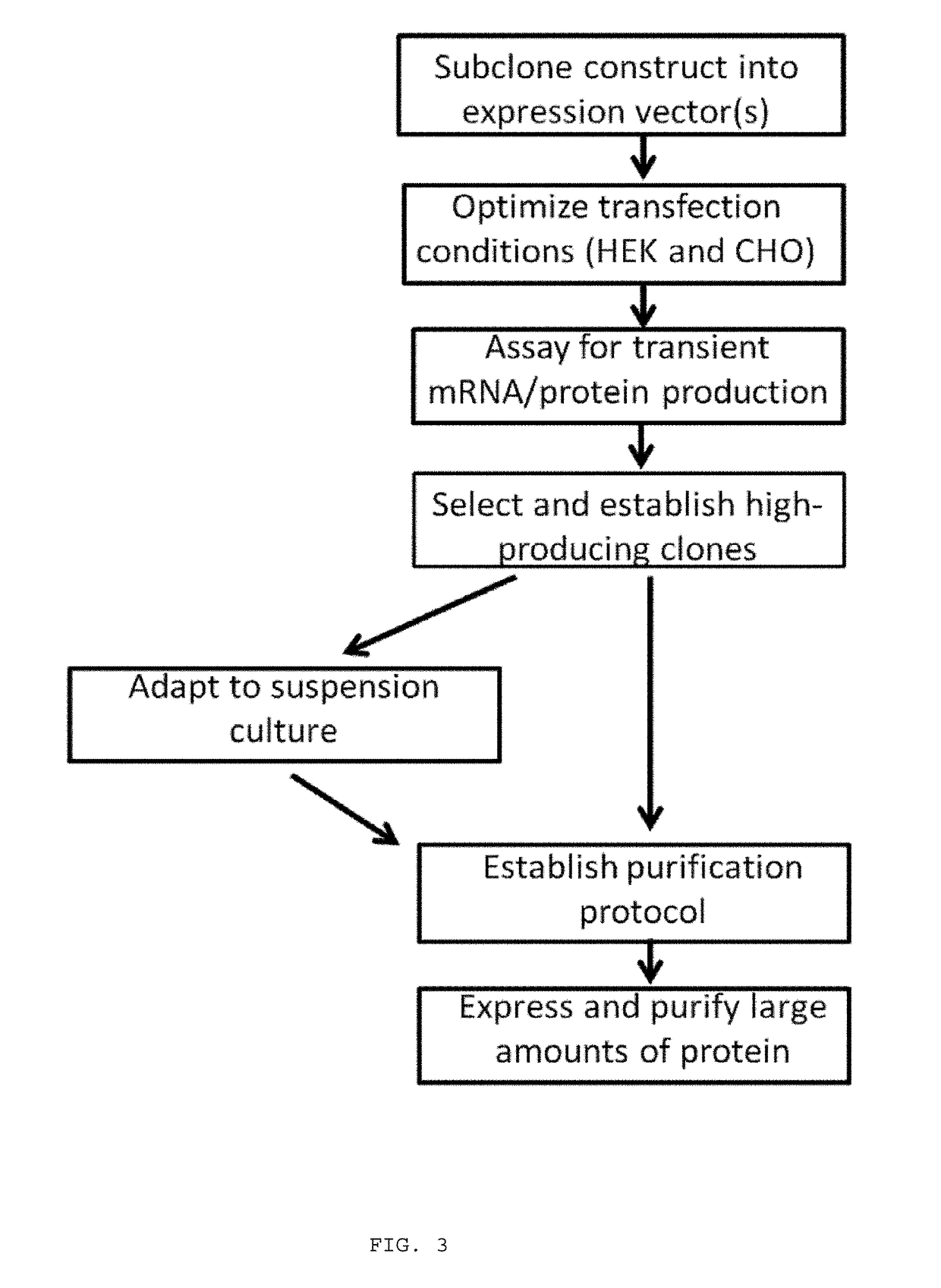Systems, compositions, and methods for transplantation
a technology of system and composition, applied in the field of systems, compositions, and methods for transplantation, can solve the problems of inability to differentiate acute injury from acute injury, difficulty in treating spinal and joint pain, and inability of physicians to have a system or method available, etc., to achieve the reduction of the degeneration rate of tissue, cartilage and discs, synovial inflammation, or a combination thereof, and the effect of reducing the severity and occurren
- Summary
- Abstract
- Description
- Claims
- Application Information
AI Technical Summary
Benefits of technology
Problems solved by technology
Method used
Image
Examples
example 1
n and Selection of HEK293 Clones Expressing Recombinant A2M
[0338]Recombinant A2M wild type sequence was expressed in HEK293F cells. Hek293F cells are plated adherently and allowed to attach overnight. Cells are transfected with XTreme Gene HP (Roche) and DNA in a 6 uL reagent: 2 ug DNA ratio. Cells are grown for 48 hours at 5% CO2 and 37 degrees Celsius. Forty-eight hours after transfection media samples are taken to confirm success of the transfection via an ELISA assay that quantifies A2M protein. Cells are split so as to be in logarithmic growth phase and selection antibiotic (blasticidin) is added at 10 μg / mL (selection concentration determined experimentally). Cells are selected in antibiotic until all of the negative control cells are dead (usually about 4 to 5 days). Another media sample is taken at this point to confirm that this newly established pool is still producing protein. Upon confirmation of protein production cells are plated at a density of −100 cells / 10 cm dish w...
example 2
n of ADAMTS-5- and ADAMTS-4-Induced Damage of Cartilage with A2M
[0339]Bovine Cartilage Explants (BCEs) were treated with 500 ng / ml ADAMTS-5 or ADAMTS-4 for 2 days, with a 3-fold serial dilution of purified A2M (FIG. 7A, B). Concentration of A2M tested were 100, 33.3, 11.1, 3.7, 1.2, 0.4 μg / mL. The A2M inhibited cartilage catabolism in a concentration dependent manner. The IC50 for inhibiting 500 ng / ml of ADAMTS-5 was calculated to be ˜7 μg / ml A2M (a 1:1 molar ratio). Maximum inhibition was observed in ˜90% with 100 μg / ml A2M (a 14:1 molar ratio). The A2M was shown to block formation of Aggrecan G3 fragments (FIG. 7A, B) and FAC formation (FIG. 9).
example 3
n of APIC Retentate and Filtrate
[0340]Fresh cartilage was treated with APIC containing ˜7 mg / ml A2M. Cartilage catabolism was efficiently blocked by 1% v / v of the Retentate of the APIC production process (concentration of proteins >500 kDa in size), but not by the Filtrate (contains proteins 99% of the protective factors of autologous blood.
PUM
| Property | Measurement | Unit |
|---|---|---|
| molecular weight | aaaaa | aaaaa |
| concentration | aaaaa | aaaaa |
| pore size | aaaaa | aaaaa |
Abstract
Description
Claims
Application Information
 Login to View More
Login to View More - R&D
- Intellectual Property
- Life Sciences
- Materials
- Tech Scout
- Unparalleled Data Quality
- Higher Quality Content
- 60% Fewer Hallucinations
Browse by: Latest US Patents, China's latest patents, Technical Efficacy Thesaurus, Application Domain, Technology Topic, Popular Technical Reports.
© 2025 PatSnap. All rights reserved.Legal|Privacy policy|Modern Slavery Act Transparency Statement|Sitemap|About US| Contact US: help@patsnap.com



